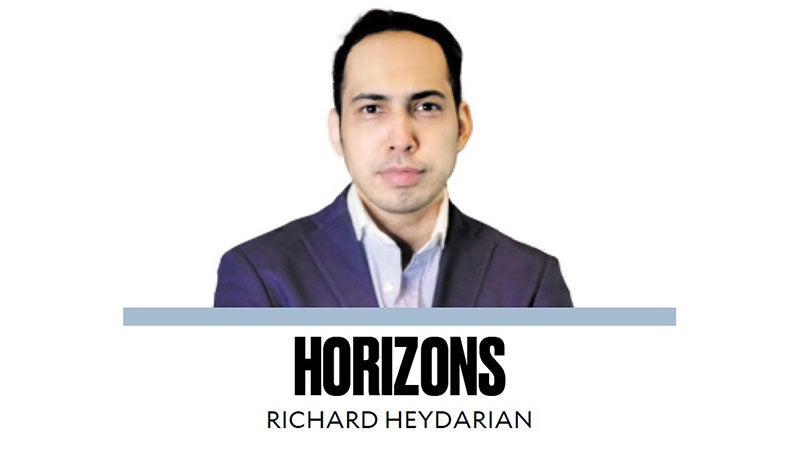Marcos, Machiavelli, and martial arts

A prince must acquire the nature of both; if he possesses the qualities of one without the other, he will be lost,” early-Renaissance thinker Niccolò Machiavelli counseled half a millennium ago. “Therefore, as a prince he is obliged to know how to act like a beast, he should [both] learn from the fox and the lion,” he continued, emphasizing the dual nature of modern political virtue.
When faced with threats and compelled to institute a stable order, a good leader employs “law” and “force” as elements of political combat. “The first is proper to men, and the second to beasts; but as the first way is often inadequate, recourse is necessary to the second. Thus a prince must know how to make good use of the beast and the man,” he argued, imagining an effective leader as a “centaur.”
Crucially, the Florentine thinker, who tragically fought for the republican cause in his home state against all odds, made it clear that an effective leader “can always inspire fear yet avoid hatred” if he abstains from the most egregious acts, such as confiscation of subjects’ property and assault on their honor.
It goes without saying that Machiavelli’s grim counsel was borne out of his own traumatic experiences at the hands of Mafiosi-style oligarchs, who almost tortured him to death and compromised Italian unity due to their petty, internecine rivalries.
Confronting an almost medieval-style challenge from the resurgent Duterte dynasty, President Marcos channeled some Machiavellian wisdom when he recently declared: “I want to be respected, but maybe fear is better.” In the same breath, however, he also extended the olive branch to his former allies-turned-nemeses.
The true essence of this doublespeak by Marcos Jr., however, was partly revealed when he purged Duterte-leaning holdovers, most notably the former solicitor general, and elevated Gen. Nicholas Torre III to the apex of power at the Philippine National Police. Thus, Marcos Jr. signaled both “softness” and “firmness” at once—a peculiar form of duality that would have likely bewildered even Machiavelli.
Is the President simply too diffident and conflict-averse to go on full offensive mode, thus his seemingly contradictory messages? Or is he playing “fox” while letting “lions” in his administration do the tough job, as in taking down the Digong-Quiboloy duo in the past year?
My personal understanding of politics has often been shaped not only by political theory, journalism, and analytics but also by martial arts. After obtaining my black belt in taekwondo in the late 2000s, which came along with the complementary “Korean massage” at the hands (or feet) of half a dozen masters—I immediately shifted my gaze to other combat sports. I seamlessly fell in love with mixed martial arts, which seemed like a game of chess—except fought with raw physicality and potentially lethal consequences. One could geek out over the thousands of variables that shape mixed martial arts fights, which are fought by masters of manifold arts on land and in the air.
Accordingly, I dabbled in boxing and, not long after, got curious about jiujitsu. As soon as I got my black belt in one sport, I instinctively understood that I was simply climbing a single branch of a bigger tree. This is why I immediately welcomed the opportunity to collaborate with martial artists from other sports, most notably karate champion James delos Santos, who generously invited me to the advanced screening of “Karate Kid” last month. The latest edition of the franchise was unmistakably compelling, thanks to its robust casting and inimitable fusing of gorgeous cinematography, authentic acting, and solid martial arts choreography. I was surprised by how much I enjoyed it, to be honest.
Among the most striking—literally and figuratively— moments, however, came right before the movie flashed on the screen. I had the chance not only to witness James’ world-class kata but also to see arnis masters, who reminded me of the rich legacy of our indigenous martial arts. A major highlight was Lakas Katorse master Rene Catili Casino. After exchanging a few moves, he made it clear to me that the essence of any true martial arts is to transcend performativity and, if necessary, go all the way to take out an opponent. The same principle applies to politics of neo-medieval variety with huge implications for the lives of more than 100 million souls and beyond.


















Wealth, power, and the Filipino future